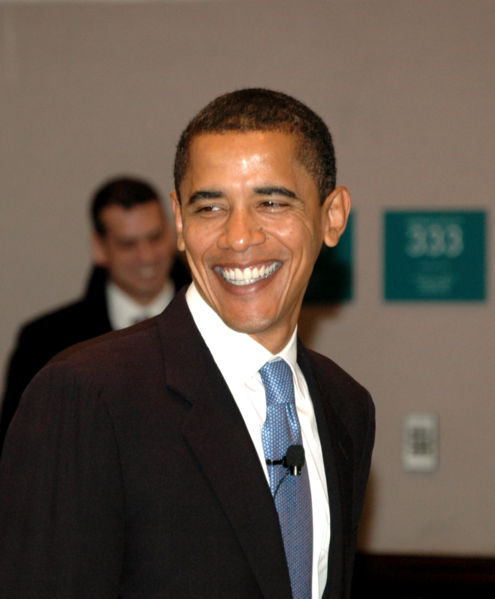 James Bamford is well known for his revealing of the National Security Agency in The Puzzle Palace, published in 1983. He has written two updates since then, Body of Secrets and The Shadow Factory, the latest one covering the Bush Administration in some detail. Bamford’s technical details in The Shadow Factory are nowhere near as good as they were in The Puzzle Palace, which is something that really attracted me to his writing. Also, in this book, Bamford seems to play both sides of the fence, at one point arguing that the attacks on 9/11 were an intelligence failure, while at the same time arguing that we must safeguard our civil liberties. This works, mostly because he successfully argues (in my opinion) that the government had all the power it needed to stop the attacks, but that incompetence ruled the day.
James Bamford is well known for his revealing of the National Security Agency in The Puzzle Palace, published in 1983. He has written two updates since then, Body of Secrets and The Shadow Factory, the latest one covering the Bush Administration in some detail. Bamford’s technical details in The Shadow Factory are nowhere near as good as they were in The Puzzle Palace, which is something that really attracted me to his writing. Also, in this book, Bamford seems to play both sides of the fence, at one point arguing that the attacks on 9/11 were an intelligence failure, while at the same time arguing that we must safeguard our civil liberties. This works, mostly because he successfully argues (in my opinion) that the government had all the power it needed to stop the attacks, but that incompetence ruled the day.
To be sure there are a few points I would take issue with. For one, although I despise the name, it was probably a good idea to roll together many agencies into the Department of Homeland Security. But quite frankly even that was done ineptly, as we have seen from auditor reports, again and again.
Returning to the Shadow Factory, in this update Bamford highlights the role of the Internet and the change in the nature of communications, where many communications have moved from sattelite to fiber, and from simple voice circuits to voice over IP. He talks about certain organizations wanting to hire Cisco employees simply to reverse engineer IOS and find ways to install back doors. I have no way of knowing if that has happened.
Bamford retreads much of the story about the illegal spying the NSA did within the United States, and how James Comey would not recertify the program. While it makes my blood boil to think that anyone in government would think that such a program was legal (certified by the attorney general or not), that part of the story isn’t so much about the NSA as it is about Dick Cheney and David Attington. Quite frankly I think Bob Woordward has covered that ground as well as could be covered.
Were I to give advice to Mr. Bamford it would be simply this: it is difficult to read just one of the three books he’s written, as either the earliest is woefully out of date, or the latest doesn’t stand on its own without having read the earliest. A consolidated update that combines all three seems in order.
 As long as I could recall, we Democrats have prided ourselves on being the “Big Tent” party. This probably stems from a combination of deft political maneuvering by FDR and a singular hatred of the Republicans after the stock market crash of 1929. The downside of the big tent is that nobody inside agrees on much. Here is an article by Peter Baker and David Herszenhorn of the New York Times that talks about how allies in the U.S. Senate are criticizing President-elect Obama and his team about a stimulus package that they claim looks a little too much like trickle-down economics. Everyone agrees that we need more jobs created. Even Republicans! But nobody agrees on how to go about it. President Bush was the darling of the party (not to mention their leader), and was able to set the agenda. But he certainly did that with a lot of support from Republican congressional leaders. Obama doesn’t seem to be doing the same.
As long as I could recall, we Democrats have prided ourselves on being the “Big Tent” party. This probably stems from a combination of deft political maneuvering by FDR and a singular hatred of the Republicans after the stock market crash of 1929. The downside of the big tent is that nobody inside agrees on much. Here is an article by Peter Baker and David Herszenhorn of the New York Times that talks about how allies in the U.S. Senate are criticizing President-elect Obama and his team about a stimulus package that they claim looks a little too much like trickle-down economics. Everyone agrees that we need more jobs created. Even Republicans! But nobody agrees on how to go about it. President Bush was the darling of the party (not to mention their leader), and was able to set the agenda. But he certainly did that with a lot of support from Republican congressional leaders. Obama doesn’t seem to be doing the same. As an American living abroad, very few people ever asked me what I thought of President Bush. They all have their opinions, it seems. And while few Swiss generally share their opinions with me, they are very intrigued about my own opinion of the incoming president. To this question, I’ve developed a pretty stock answer: “I don’t know. Ask me in a few years.”
As an American living abroad, very few people ever asked me what I thought of President Bush. They all have their opinions, it seems. And while few Swiss generally share their opinions with me, they are very intrigued about my own opinion of the incoming president. To this question, I’ve developed a pretty stock answer: “I don’t know. Ask me in a few years.” James Bamford is well known for his revealing of the National Security Agency in
James Bamford is well known for his revealing of the National Security Agency in